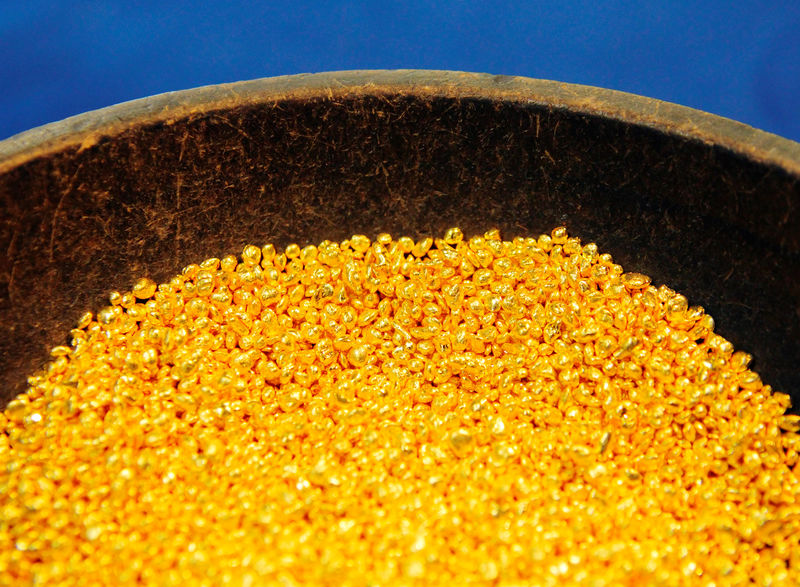Gold prices edge higher, copper nurses steep losses as China woes persist
Gold prices rose in Asian trade on Wednesday, although gains were limited by strength in the dollar as uncertainty over the U.S. presidential race and anticipation of a Federal Reserve meeting kept traders on edge.
Industrial metals, however, were nursing deep declines, with copper prices trading at a near four-month low amid worsening sentiment over top commodity importer China. Copper’s latest decline was sparked by weak growth data from China.
Spot gold rose 0.3% to $2,416.72 an ounce, while gold futures expiring in August rose 0.4% to $2,417.65 an ounce. Spot prices were nursing a tumble from record highs over the past two weeks. Gold steady as dollar recovers
Gains in the yellow metal were limited by a rebound in the dollar, which benefited from a mix of safe haven demand and positioning before a Fed meeting next week.
Traders remained largely biased towards the greenback amid persistent uncertainty over the 2024 presidential elections, especially after President Joe Biden dropped out of the race and endorsed Vice President Kamala Harris as the Democratic candidate.
Harris was seen swiftly garnering support from the party, setting her up for a showdown with Republican nominee Donald Trump this year.
A Reuters/Ipsos poll showed Harris polling slightly ahead of Trump after her endorsement by Biden.
Traders were also cautious towards metal markets before a Fed meeting next week, where the central bank is widely expected to keep interest rates steady. But focus will be on when the bank plans to begin trimming rates, with general consensus pointing to a September cut.
Other precious metals retreated, with platinum and silver losing ground on their exposure to industrial metals. Copper falls further on China woes
Benchmark copper futures on the London Metal Exchange fell 0.4% to $9,132.50 a tonne, while one-month copper futures fell 0.6% to $4.1427 a pound. Both contracts were at near four-month lows.
Copper and broader industrial metals were battered by persistent concerns over demand in top commodity importer China, after the country logged slower-than-expected growth in the second quarter.
The Third Plenum of the Chinese Communist Party yielded scant cues on plans for more stimulus from Beijing, while an unexpected interest rate cut largely underwhelmed earlier this week.
Sentiment towards China was also dented by uncertainty over the U.S. elections, specifically in what a change in administration meant for Washington’s stance towards China.
Source: Investing.com
